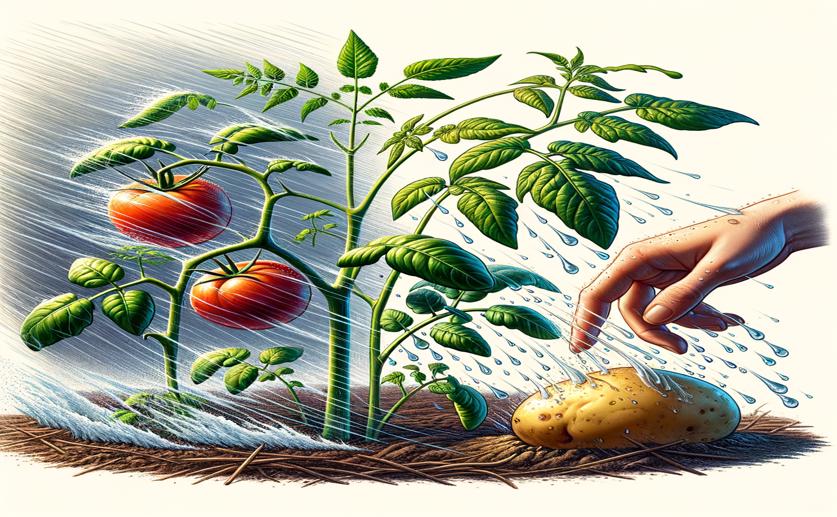
How Tomato and Potato Plants React to Rain, Wind, and Touch
Jenn Hoskins
30th May, 2024

Image Source: Natural Science News, 2024
Key Findings
- Researchers at the University of Debrecen found that mechanical forces like rainfall, wind, and touch affect gene expression in tomato and potato plants
- In tomato plants, rainfall altered the expression of all XTH genes, while 72% responded to wind and 64% to touch
- In potato plants, 91% of XTH genes responded to rainfall, with 49% and 66% responding to wind and touch, respectively
AgricultureEnvironmentPlant Science
References
Main Study
1) Expression responses of XTH genes in tomato and potato to environmental mechanical forces: focus on behavior in response to rainfall, wind and touch.
Published 31st December, 2024 (future Journal edition)
https://doi.org/10.1080/15592324.2024.2360296
Related Studies
2) Application of naturally occurring mechanical forces in in vitro plant tissue culture and biotechnology.
3) Plants are intelligent, here's how.
4) Plant behaviour and communication.
5) Thigmomorphogenesis: a complex plant response to mechano-stimulation.



 22nd May, 2024 | Jim Crocker
22nd May, 2024 | Jim Crocker